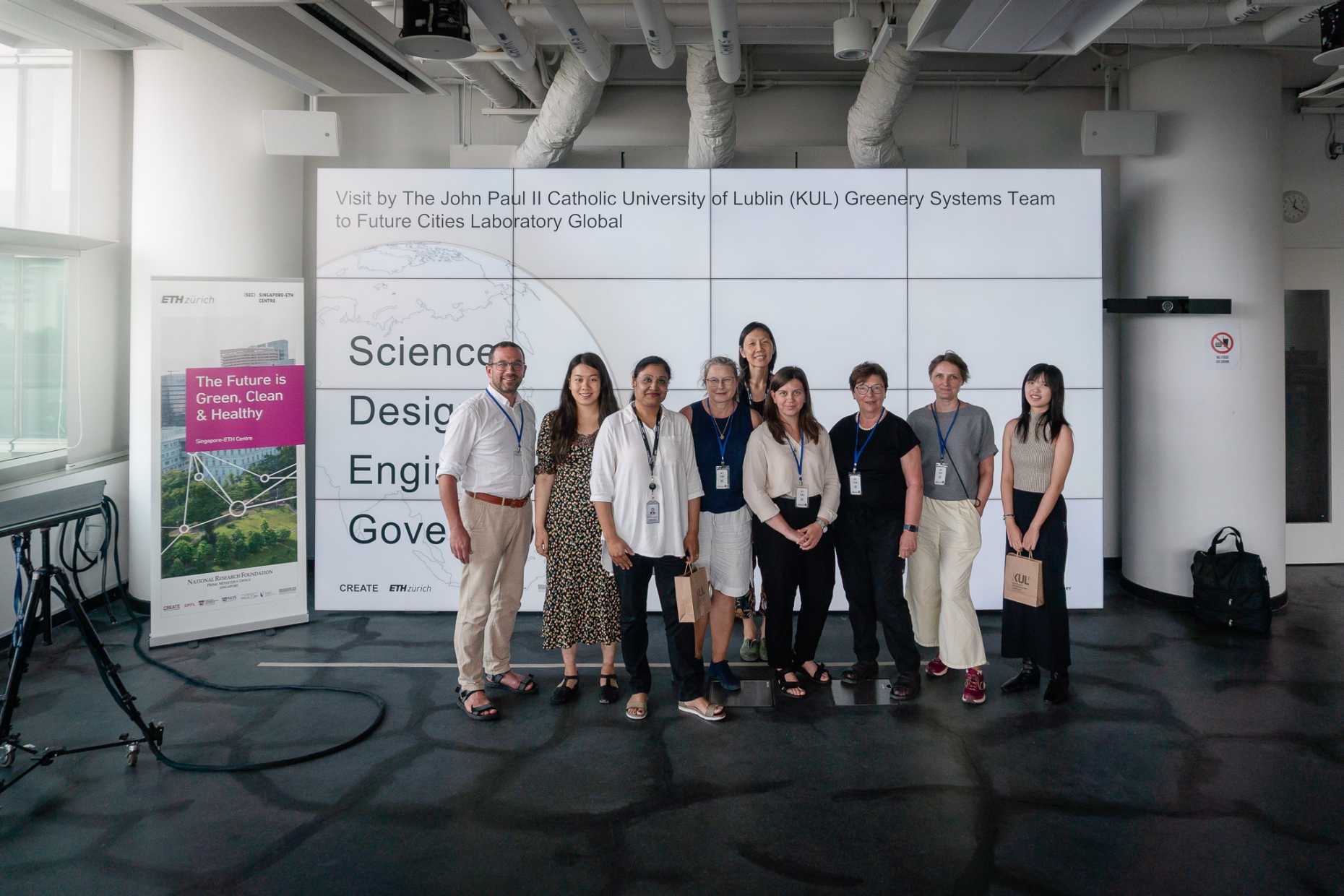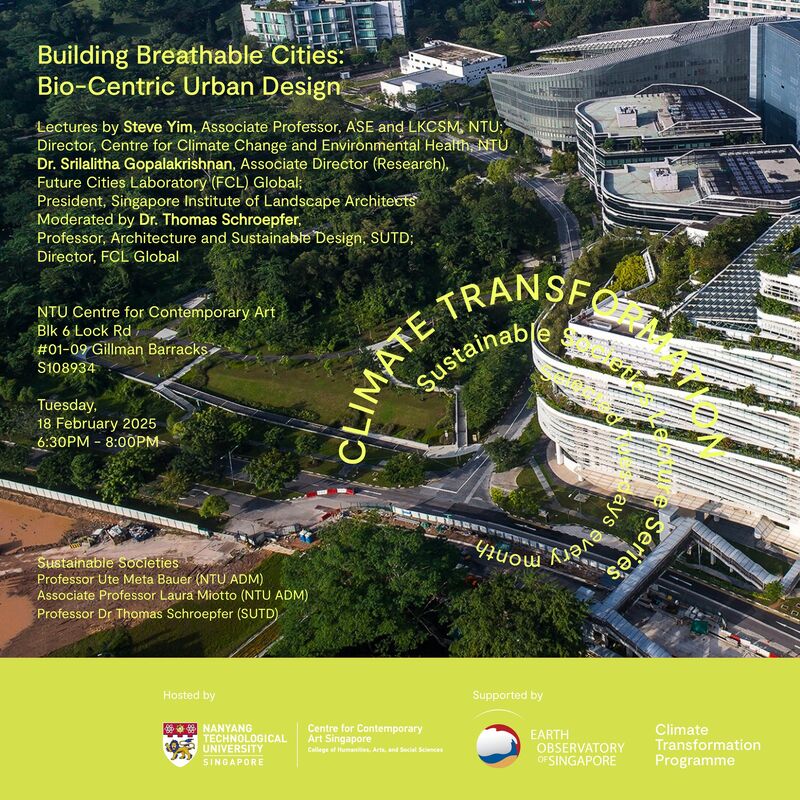FCL In the News
Visit to FCL by the Urban Greenery Systems team, John Paul II Catholic University of Lublin

FCL Global Singapore hub welcomed a delegation from the John Paul II Catholic University of Lublin (KUL) Department of Landscape Planning and Design, Poland.
FCL Global, SUTD, NUS, bioSEA, and Arup Launch ‘Urban Ecological Corridors’ Research Project

Launch of ‘Urban Ecological Corridors’ research project
Building Breathable Cities: Bio-Centric Urban Design

FCL Global Director Prof Dr Thomas Schroepfer and Associate Director (Research) Dr Srilalitha Gopalakrishnan will be part of the lecture “Building Breathable Cities,” hosted by the NTU Centre for Contemporary Art Singapore.
A better designed Singapore, from bicycle paths to sustainability

A Business Insider story on Singapore quotes Prof. Dr Thomas Schroepfer, Director, FCL Global, on improving the city with bicycle paths and future-proofing Singapore from future challenges.
Fewer utopias, more concrete solutions

FCL Global Executive Director Prof. Sacha Menz and the programme were featured in NZZ’s biannual special issue.
How design can combat the housing crisis
The Expandable House, a prototype in the village of Kampung Batu Besar in Batam, Indonesia, is featured in Frame magazine for its approach to tackle housing challenges.
Designing density better for cities and nature
The way urban density can benefit not only cities, but also natural ecosystems, is emerging as an important factor to reduce the likelihood of future pandemics, wrote Prof. Stephen Cairns.
Hidden role of people in how cities work
What if the seemingly chaotic movement of people is in fact predictable and follows hidden regularities? Asst Prof. (Adj) Dr Markus Schalepfer explains a travel law to predict the movement of people in cities.
The City in Future
Prof. Stephen Cairns speaks about the role of Singapore as a hub and its unique model in the documentary, "The City in Future – Learning from Singapore", featured on German TV, DW.
FCL Global launched
The collaboration among ETH, NUS, NTU Singapore and SUTD will see scientists from Singapore and Switzerland co-develop solutions to help cities and their surroundings grow sustainably